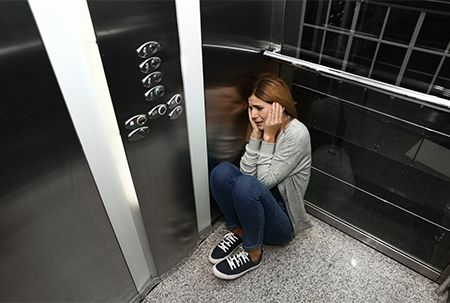 Depression can be complex.
Depression can be complex.
Depression, also known as Major Depressive Disorder, is a common and highly treatable mental disorder.
The characteristics of major depression involve a feeling of persistent sadness and a lack of interest in activities the person once found enjoyable. Sleep is often affected, either by oversleeping or not sleeping enough. Other signs include changes in appetite – often over-eating or not eating enough. Overall, life feels like you’re in a fog, and irritability or restlessness are common symptoms of depression.
Externally, loved ones may notice a lack of energy and motivation. Functioning may be affected by a person missing work or falling behind in school and socially isolating themselves from friends and family.
Depression involves different intensity levels based on symptoms, described as mild, moderate, or severe. Depression also can be an isolated event or a recurring condition.
Intense worrying best characterizes anxiety.
Characteristics of anxiety, also known as Generalized Anxiety Disorder, are a feeling of intense worry, nervousness, and tension.
Individuals often feel a sense of uneasiness in general but may also perseverate about the outcome of a particular situation. Throughout the day, a person with anxiety may have negative, intrusive thoughts affecting their ability to enjoy their day and experience a sense of well-being.
Physical changes, including increased heart rate, blood pressure, muscle tension, and body temperature, perpetuating a person’s fear and losing control accompany anxiety often.
Relaxation techniques are highly effective in addressing the physical symptoms a person experiences during anxiety.
 Panic disorder involves repeated experiences of intense fear.
Panic disorder involves repeated experiences of intense fear.
Those with panic disorder display unexpected and repeated episodes of intense fear even though the person is not in a dangerous situation.
The strong sense of fear accompanies the physical symptoms listed above but to a higher degree. These isolated events are known as panic attacks.
People often confuse panic attacks with physical health problems since the symptoms can mimic one another.
Therapy can help.
If you are experiencing depression, anxiety, or panic disorder, remember these are treatable conditions that are highly responsive to treatment.
We can work together to help you cope with past events that helped create your depression, anxiety, or panic disorder. You can learn what specific activities, such as medication, deep breathing, or exercise, may be effective in minimizing or eliminating the anxiety you are feeling today.
I look forward to hearing from you.

 (704) 621-7652
(704) 621-7652 General Inquiries
General Inquiries
